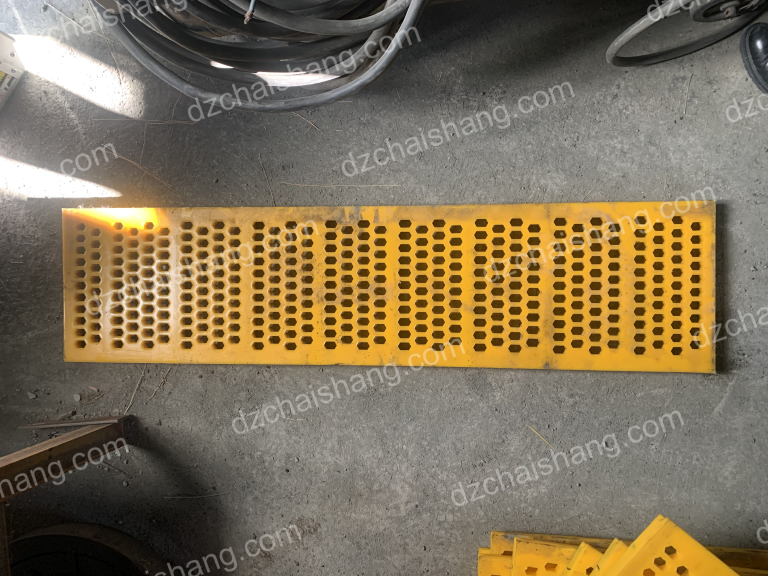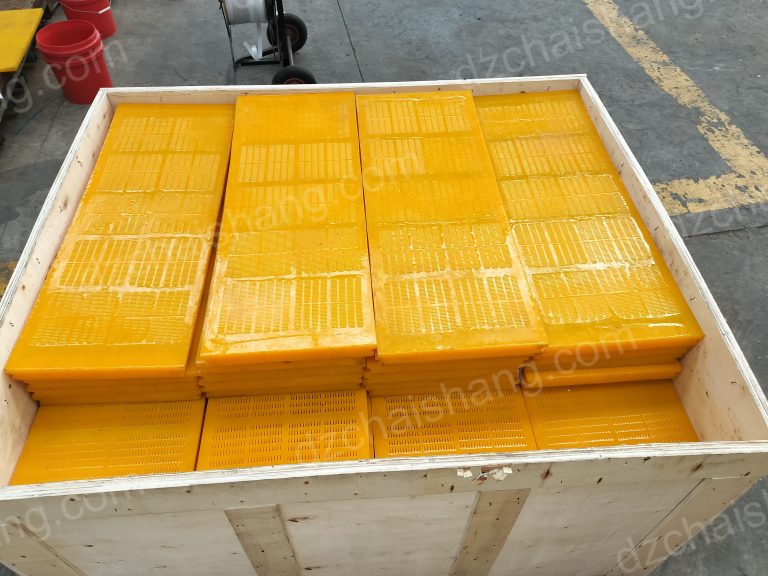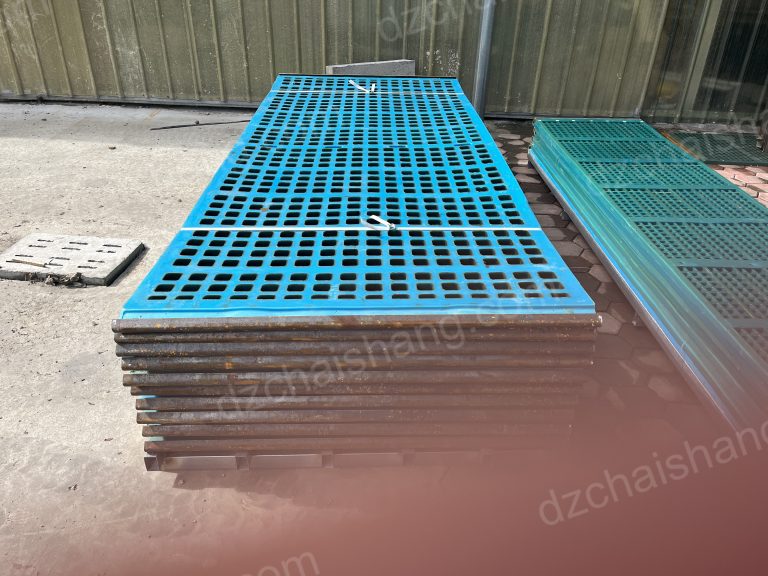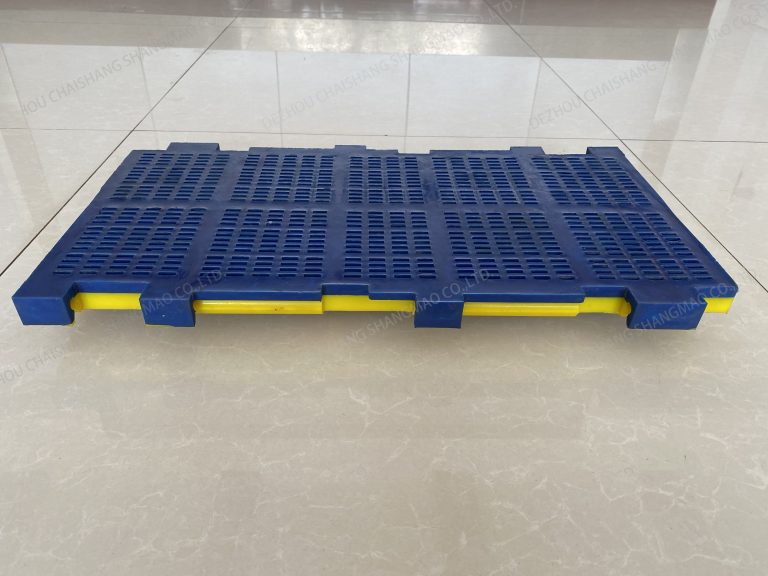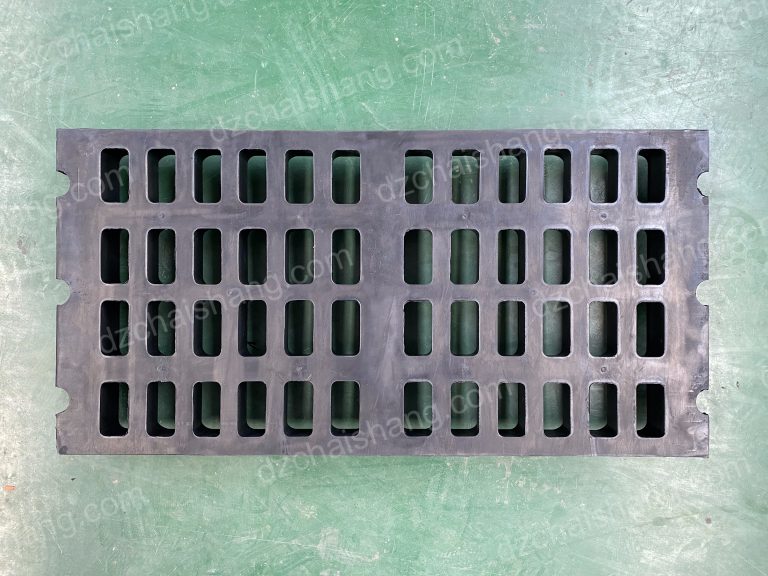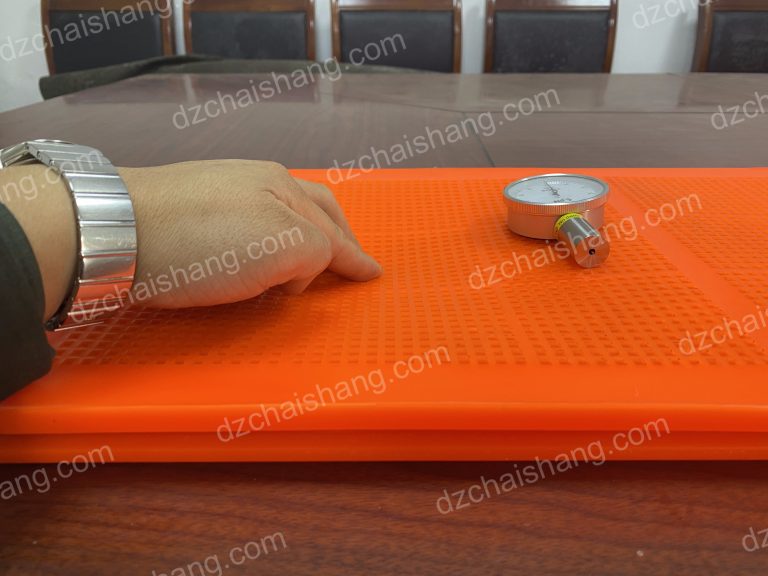Exploring the Advanced Facilities in polyurethane screen panel Production
polyurethane screen panels are a critical component in various industries, including mining, quarrying, and recycling. These panels are renowned for their durability, flexibility, and ability to withstand harsh environmental conditions. The production of these panels requires advanced facilities and resources, which play a pivotal role in ensuring the quality and performance of the final product.
The production of polyurethane screen panels begins with the formulation of the polyurethane material. This process involves the careful mixing of isocyanates and polyols, the primary components of polyurethane, in a controlled environment. Advanced facilities are equipped with automated mixing systems that ensure the precise proportioning of these components. This precision is crucial as it directly impacts the physical properties of the polyurethane, such as its hardness, elasticity, and resistance to wear and tear.
Once the polyurethane material is formulated, it is then poured into molds to create the screen panels. This process, known as casting, requires specialized equipment that can accurately control the temperature and pressure conditions. High-end facilities utilize computer-controlled casting machines that can maintain optimal conditions throughout the process, resulting in panels with uniform thickness and consistent quality.
The curing process follows casting, where the Polyurethane Panels are heated to facilitate the chemical reaction that hardens the material. Advanced curing ovens are used in this stage, which can regulate the temperature and humidity levels to ensure a complete and uniform cure. These ovens also feature advanced monitoring systems that allow for real-time tracking of the curing process, enabling quick adjustments if necessary.
After curing, the panels undergo a series of tests to verify their quality and performance. State-of-the-art testing facilities are equipped with a range of instruments that can measure various properties of the panels, such as their hardness, elasticity, and resistance to abrasion. These tests are crucial in ensuring that the panels meet the stringent standards set by the industry.
In addition to the advanced facilities, the production of polyurethane screen panels also requires a wealth of resources. These include raw materials, energy, and skilled labor. High-quality raw materials are sourced from reliable suppliers to ensure the performance of the panels. Energy is another critical resource, with efficient energy management systems in place to minimize consumption and reduce environmental impact. Skilled labor, on the other hand, is indispensable in overseeing the production process and ensuring that all procedures are carried out correctly.
Moreover, continuous research and development activities are integral to the production of polyurethane screen panels. These activities are aimed at improving the properties of the panels, developing new formulations, and optimizing the production process. Advanced facilities often house dedicated research and development departments, staffed by a team of experienced scientists and engineers.
In conclusion, the production of polyurethane screen panels is a complex process that requires advanced facilities and a wealth of resources. These elements work together to ensure the production of high-quality panels that meet the demands of various industries. As technology continues to evolve, we can expect further advancements in the facilities and resources used in the production of these essential components.
Understanding the Resources Required for Polyurethane screen panel Manufacturing
Polyurethane screen panels are an integral part of various industries, including mining, quarrying, and recycling. These panels are renowned for their durability, efficiency, and ability to withstand harsh environmental conditions. However, the production of these panels requires a complex process and a range of resources. This article aims to shed light on the facilities and resources necessary for the manufacturing of polyurethane screen panels.
The manufacturing process of polyurethane screen panels begins in a specialized facility equipped with advanced machinery and technology. These facilities are designed to handle the production of polyurethane, a versatile material with unique properties. The production process involves the reaction of polyols and isocyanates under controlled conditions to form polyurethane. This process requires a high level of precision and control, necessitating the use of sophisticated equipment and machinery.
One of the primary resources in these facilities is the raw materials required for the production of polyurethane. These include polyols, isocyanates, and various additives that enhance the properties of the final product. These materials are carefully selected and sourced from reliable suppliers to ensure the quality and performance of the screen panels.
In addition to the raw materials, the manufacturing process also requires a range of specialized equipment. This includes mixing and dispensing machines for the accurate blending of the polyols and isocyanates, and molding machines for shaping the polyurethane into screen panels. These machines are typically computer-controlled to ensure precision and consistency in the production process.
Another crucial resource in the production of polyurethane screen panels is the skilled workforce. The manufacturing process involves several stages, each requiring specific skills and expertise. From the initial mixing of the raw materials to the final molding and finishing of the panels, each step is carried out by trained professionals who understand the intricacies of working with polyurethane.
Energy is another significant resource required in the manufacturing process. The production of polyurethane involves several energy-intensive stages, including heating, mixing, and molding. Therefore, these facilities often have dedicated energy sources to ensure a steady supply of power for uninterrupted production.
Moreover, the manufacturing process also requires stringent quality control measures. This involves regular testing and inspection of the raw materials and the finished products to ensure they meet the required standards. Quality control is carried out by trained professionals using advanced testing equipment.
Lastly, the manufacturing facilities also need to have proper waste management systems in place. The production of polyurethane screen panels can generate waste in the form of unused raw materials, offcuts, and defective products. These need to be properly disposed of or recycled to minimize the environmental impact of the manufacturing process.
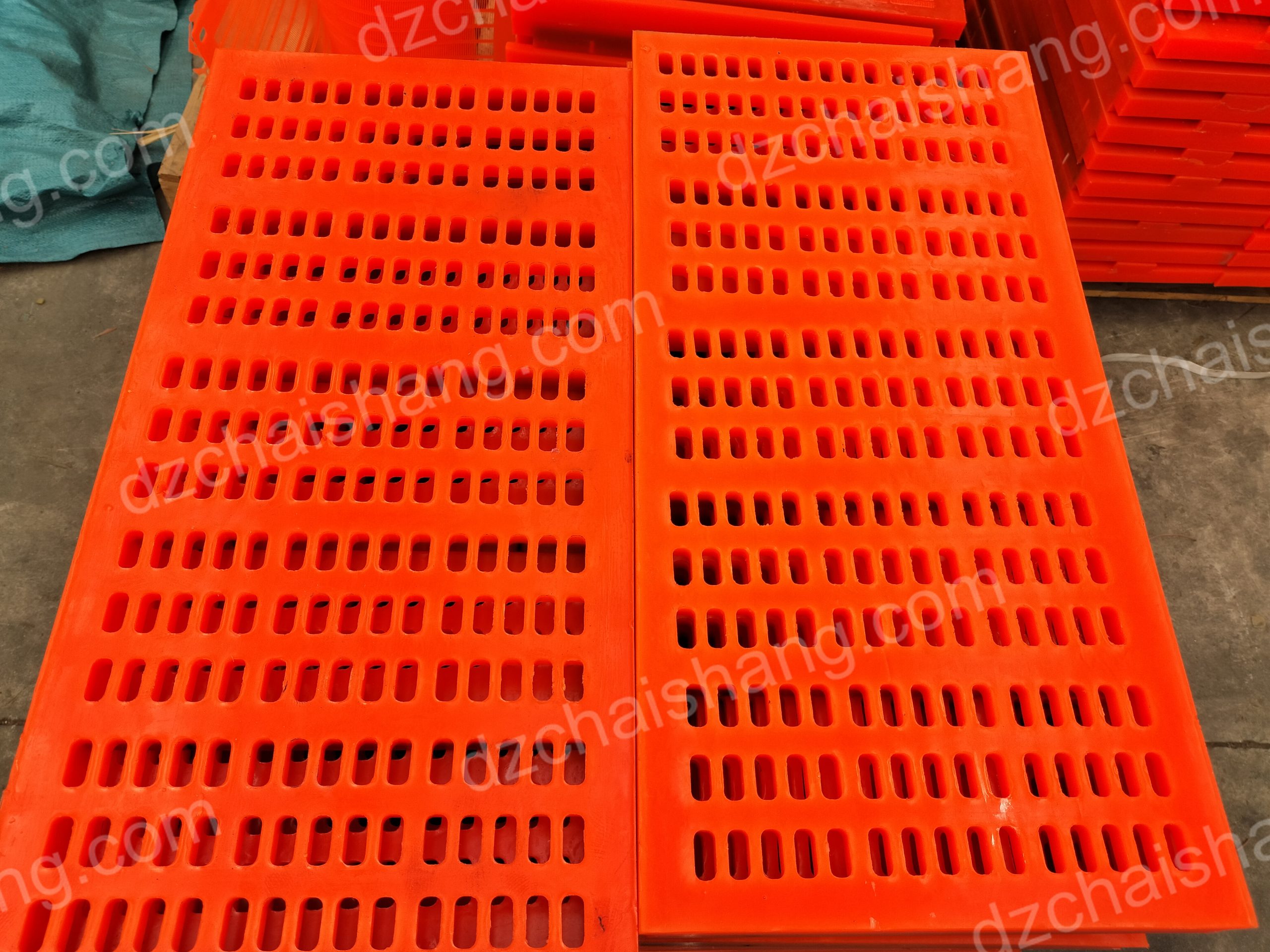
In conclusion, the manufacturing of polyurethane screen panels requires a range of resources, including specialized facilities, raw materials, advanced machinery, a skilled workforce, energy, quality control measures, and waste management systems. These resources are crucial in ensuring the production of high-quality screen panels that meet the demands of various industries. Therefore, understanding these resources is essential for anyone involved in the production or procurement of polyurethane screen panels.

